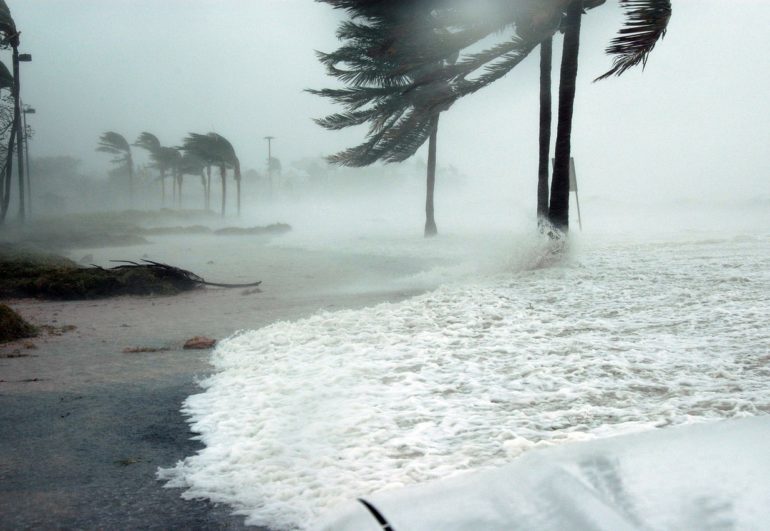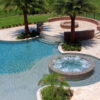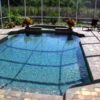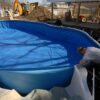So far, 2025 has been a pretty quiet hurricane season for Tampa, FL and the surrounding areas. However, as any swimming pool contractor in Tampa FL can tell you, some of the most damaging hurricanes have struck during seasons that started off slow. Even though hurricane season is nearly over, we wanted to share a few expert tips on how to prepare your swimming pool for the next major storm.
1) Secure pool equipment. For swimming pool equipment that is fixed in place, make sure all the bolts are tight and everything is as secure as it can be. This includes the pool pump, filter, salt chlorination system, heater, ladder, diving board, and slide.
2) Bring loose pool equipment inside. Any object that is not secure can become a dangerous projectile during a hurricane. Chairs, tables, poles, brushes, pool vacuums, toys, basketball hoops, containers of chemicals, and free-standing grills should be brought inside. Even outdoor cabinets which may seem sturdy can get blown over in 75+ mile per hour winds, so bring them in too if you can or find a way to secure them to your house.
3) Clean the french drain. Most in-ground pools have a french drain built into the deck between the pool and the house. This channels water out to the sides of the pool deck rather towards the house. Hurricanes can pour a lot of rain very quickly onto your pool and pool deck. If your french drain has leaves or other debris in it, water won't be able drain smoothly and you could end up flooding your deck area, possibly even leaking into your house.
4) Clean downspout and gutters. As you clean out the french drain in the pool deck, go ahead and clean the gutters along the edge of your roof and the downspouts too. If they are clogged with leaves, sticks, balls or toys (been there), water will overflow onto your pool deck forcing your french drain to handle even more water. This extra water could be more than your french drain can handle, and could cause water to flood into your home.
5) Prune trees. Pruning the trees around your pool, will reduce the likelihood you'll have branches break off and blow through your pool enclosure or worse yet, your windows. It will also lessen the amount of branches and leaves that end up in your gutters potentially clogging them.
6) Add chlorine. Rain from a hurricane dilutes the chlorine in your pool. You could also end up with a lot of leaves and other organic matter in your pool which could accelerate algae growth. If you use liquid chlorine, pour an extra jug into the pool. If you have a salt chlorine system, increase the chlorine level the day before (since you won't be able to do it after #7...)
7) Turn off the power. Turn off the power for all electrical equipment at the circuit breaker. This can help to limit short circuits and damage to electrical equipment if lightning strikes your house, debris strikes the equipment, or wind blows covers off of control panels.
No matter what else you do, don't drain the water out of your swimming pool! Heavy rain saturates the ground around an in-ground swimming pool. If you empty the water out of your pool, there's a good chance the ground water will pop the pool right out of the ground (yes, I've seen it.)
By taking these steps, you can greatly reduce the chances of damage to your swimming pool and home during a hurricane.
If you have any questions about your pool, or if you're interested in remodeling your pool or building a new pool in the Tampa, Clearwater or New Port Richey areas, contact Grand Vista Pools, the premier builders of custom swimming pools Tampa FL.













